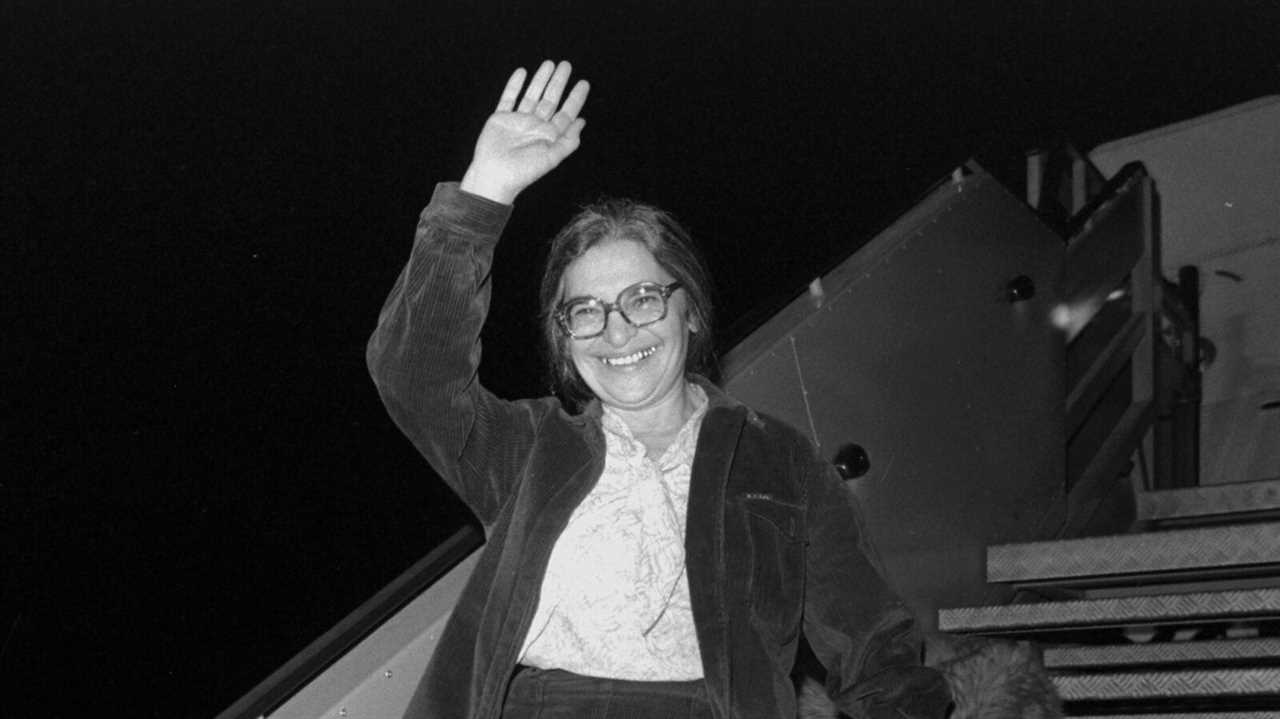
Ida Nudel, who personified the Cold War struggle of Jews to immigrate from the Soviet Union to Israel, died on Tuesday in Israel, where she had lived since 1987. She was 90.
Her death was announced by Prime Minister Naftali Bennett, who said in a statement that Ms. Nudel was “an exemplar of Jewish heroism for us all” who embodied “the yearning for Zion” at any cost.
Ms. Nudel, an economist, became known as the “Guardian Angel” for mounting a one-woman campaign to maintain communication and monitor the condition of her fellow “Prisoners of Zion” — Soviet Jews, known informally as refuseniks, who like her had been imprisoned or persecuted for seeking permission to immigrate. She was banished to Siberia in 1978 after unfurling a banner from her Moscow apartment that read, “K.G.B., Give Me My Visa to Israel.”
President Isaac Herzog of Israel, whose father, President Chaim Herzog, greeted Ms. Nudel when she arrived in Israel to a hero’s welcome in 1987, said in a tribute to her on Twitter, “It’s important to remember and commemorate the stories of the Prisoners of Zion who with spirit and bravery changed the world.”
She won her 16-year battle against the Soviet bureaucracy when Mikhail S. Gorbachev, the Communist Party’s general secretary, relented, following well-publicized visits to Ms. Nudel by Jane Fonda, which the actress said provided “a mantle of protection,” and more subtle diplomatic appeals by the United States secretary of state, George Shultz.
Mr. Gorbachev was also prodded by the American industrialist Armand Hammer, who said Mr. Gorbachev had asked him if he would help extricate Moscow from its decade-long war in Afghanistan.
“I will if you promise me one thing — give me Ida,” Mr. Hammer, who flew Ms. Nudel to Israel on his private jetliner, said he told Mr. Gorbachev.
Her autobiography, “A Hand in the Darkness,” was published in English in 1990, three year after it inspired an Italian film, “Farewell Moscow” (1987), starring Liv Ullmann.
Ida Yakovlevna Nudel was born on April 27, 1931, near Crimea, to Yakov Nudel and Chaya (Filanovsky) Nudel. She described her parents as nonreligious idealistic Communists.
She was raised by her maternal grandparents on a collective farm until she was 3. Her father was killed fighting the Nazis near Stalingrad when she was 10.
After graduating in 1954 from the Moscow Institute of Engineering and Economics, Ms. Nudel worked for a construction company and later as an accountant for the Moscow Microbiological Institution.
Inspired by Israel’s victory in the Six-Day War in 1967 and by the attempt by a group of Soviet Jews to commandeer a small plane at the Leningrad airport and fly it to Israel (which she heard about on a radio she had gotten as a birthday present from her sister, Ilena), she, her sister, her brother-in-law and her nephew applied for visas and began learning Hebrew.
She was charged with “malicious hooliganism” for her protests in the late 1970s, fired for being a threat to Soviet security and sent to Siberia, where she worked for nearly four years as a night watchman at a truck depot.
“Without prison,” she wrote to her sister, “I will not gain freedom.”
When her exile ended, she was not permitted to return to Moscow. She resettled in the relatively remote city of Bender, in Moldova.
Ms. Nudel was in her mid-50s when she joined her sister, who with her family had been granted an exit visa in 1972. She originally lived in a rural settlement, then moved to Rehovot to be closer to sister. It was there that she founded the organization Mother to Mother to support single mothers who immigrated to Israel from the Soviet Union with their children.
Information on survivors was not immediately available.
Mrs. Nudel also vociferously protested the Israeli government’s decision to withdraw from Gaza, in effect ceding internal control to the militant Islamic Palestinian organization Hamas. And she opposed visitation and other rights for Hamas and Hezbollah prisoners in Israel unless reciprocal rights were granted to captured Israeli soldiers.
When she was fired from her job in Moscow, Ms. Nudel was careful in court not to disparage the Soviet Union when she described her attraction to Israel.
“I was born here and lived here for 40 years, and you can’t deprive me of my childhood, youth or adulthood,” she wrote of Russia in her memoir. “But I am also part of another land, which is the dream of my people — an ancient, wise and furious people with a martyr’s fate.”
She elaborated in 1987, when she first landed in Tel Aviv, accompanied by her pet collie. “For me it is the moment,” she said. “It is the moment of my life. I am at home. I am on the soil of my people. Now I am an absolutely free person among my own people.”
Did you miss our previous article...
https://trendinginthenews.com/usa-politics/expressing-fury-over-the-australia-submarine-deal-france-cancels-a-gala-celebrating-relations-with-the-us






